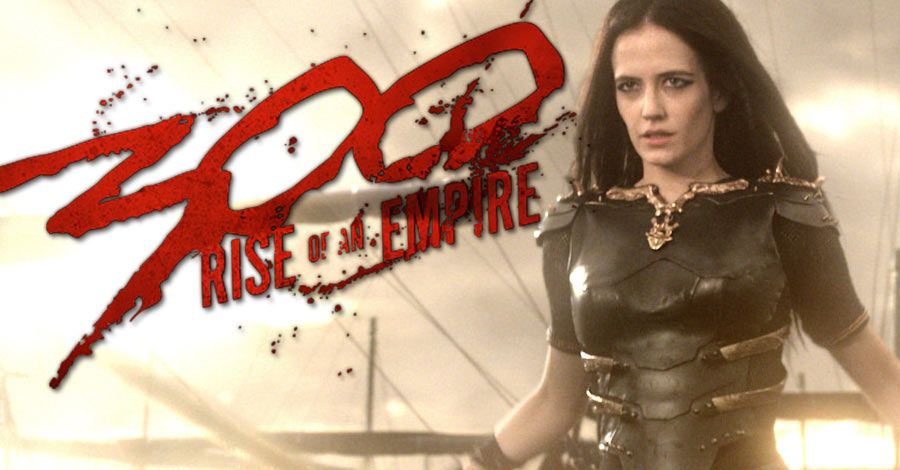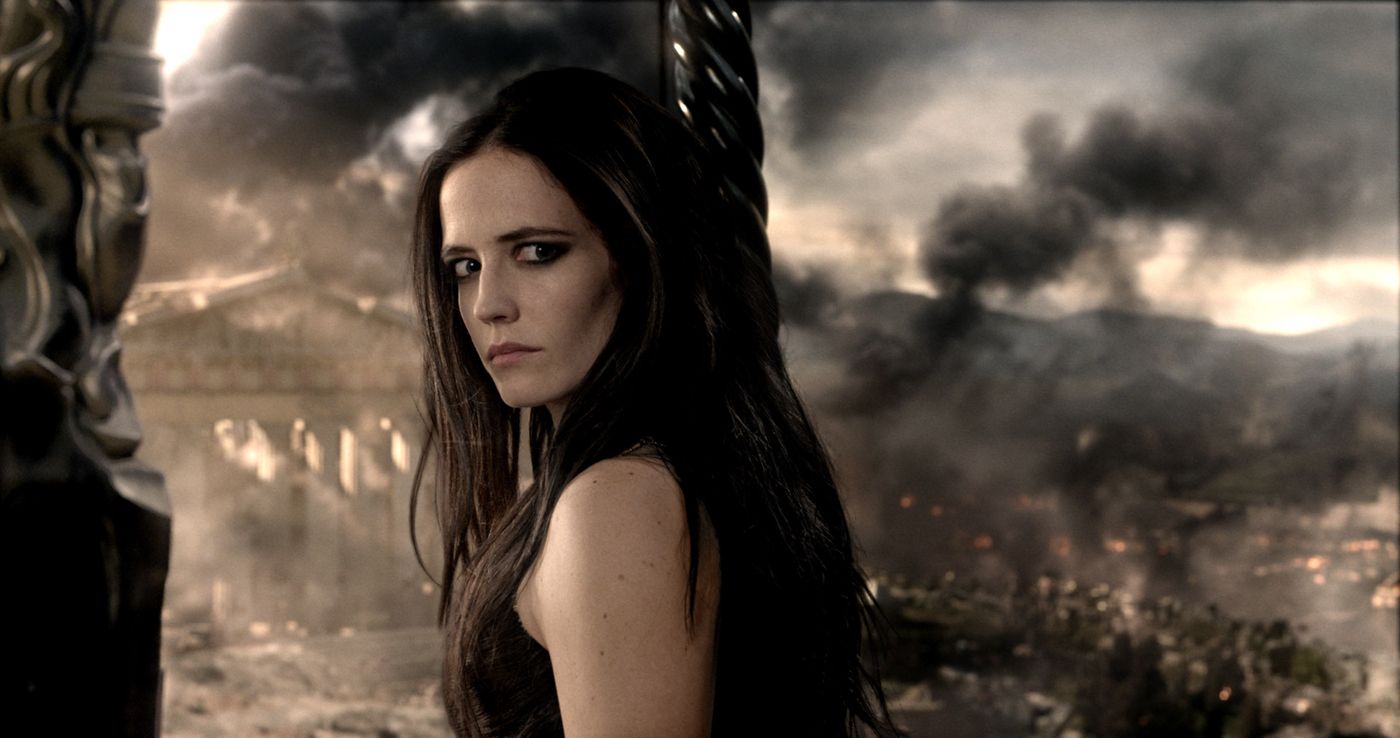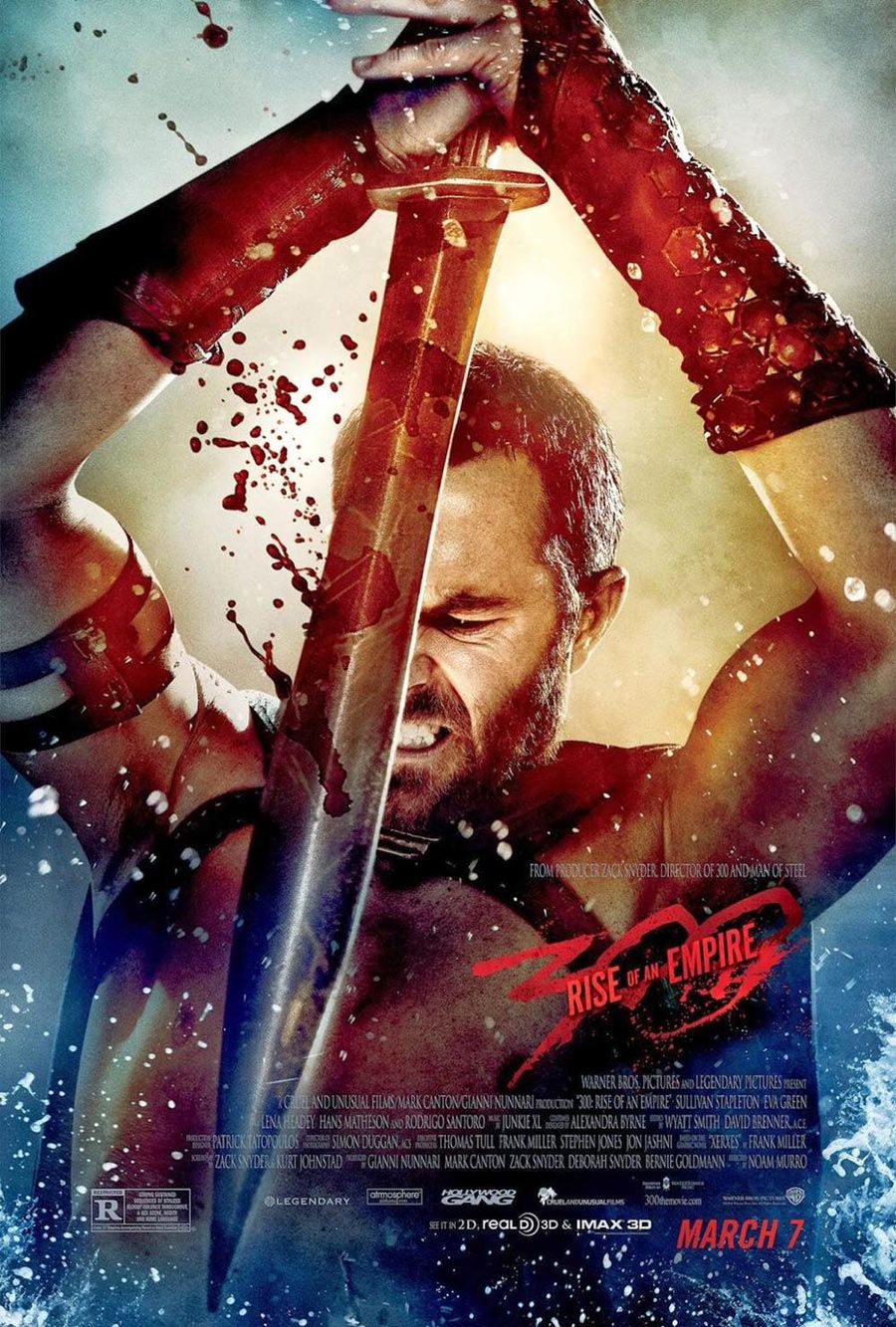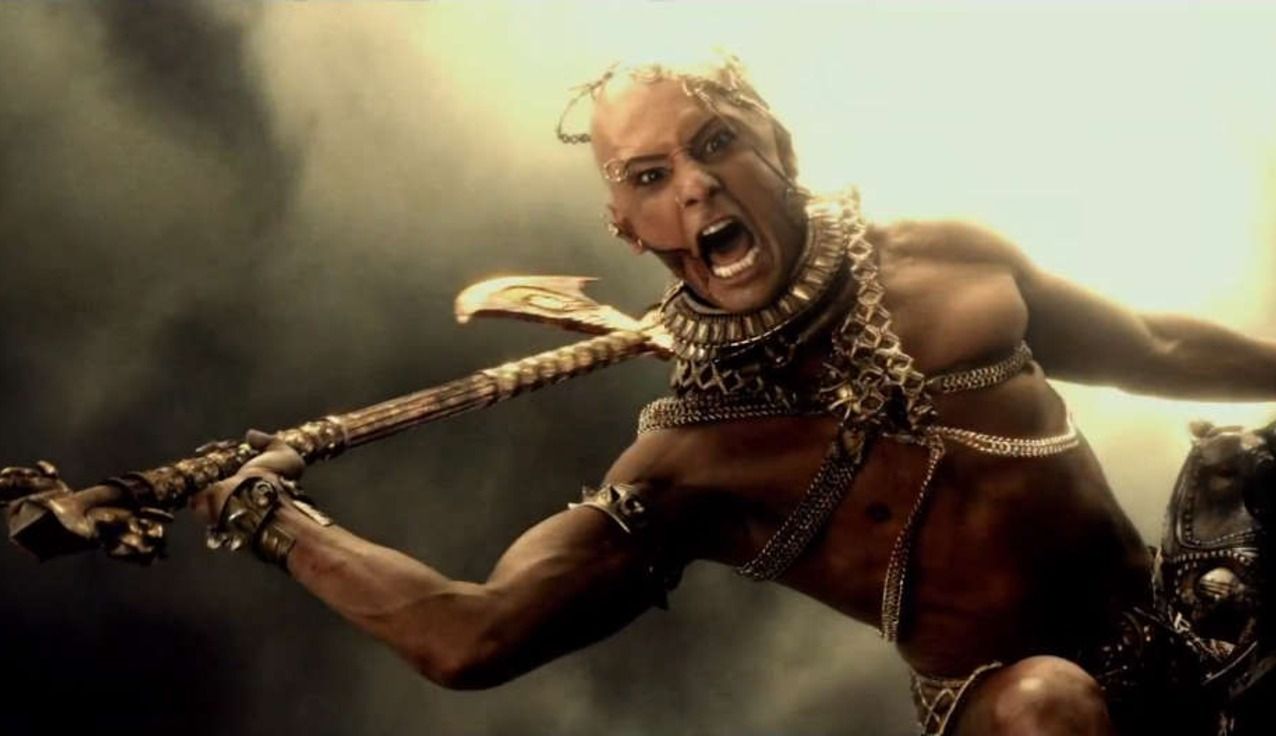When Zack Snyder's "300" premiered in 2006, he was still a virtual unknown, with but one previous film -- "Dawn of the Dead" -- to his credit. Eight years later, he is giving another filmmaker the same opportunity to make a splash with that film's sequel, dubbed "Rise of an Empire." Director Noam Murro previously directed the 2008 dramedy "Smart People," but with this bombastic sequel revisiting the world and the aesthetic of Snyder's iconic breakthrough, the filmmaker may soon find himself competing for projects that demand his predecessor's peerless technical proficiency and irrepressible vision for creating new cinematic worlds.
Snyder Discusses the "300" Sequel He Didn't Think Could Happen
Murro sat down with Comic Book Resources at the recent Los Angeles press day for "300: Rise of an Empire," where he discussed the challenges -- and opportunities -- in following up such an iconic work of cinema. Additionally, he highlighted the differences in focus and theme between the films, and touched upon what might be in store for him after "Empire" has conquered theaters nationwide.
CBR News: At the time "300" came out it, kind of changed like the visual landscape of moviemaking. Seven or eight years on, what are the advantages and disadvantages of returning to that world after there have been so many people who were inspired by and imitated that?
Noam Murro: Well, it's a challenge, I think, to credit everybody involved. I think that was part of the discussion of how do you advance that experience and not create a copycat of what was done seven years ago. Especially with so many [movies] it influenced and really changed; it was a game changer when it came out and many people, TV shows to other movies tried to create that look. I think we were trying to push it to become something fresh and new and still has enough times or enough connective tissue to go home with.
The first movie is so mythic and huge. In this movie, Sullivan's character is much more nuanced. How did you sort of balance that level of subtlety and nuance into something that needs to be larger than life?
I think that part of what makes this original is the writing of it, as well is understanding who Themistocles is. He is not Leonidas. He's not the King of the Spartans. He's a common man who grew up on the wrong side of the tracks, who is not only a warrior but also a politician that has to win his way -- he's not just gonna say it and people are gonna do it. He needs to win the Athenian democratic society in order to get what he wants. So it is a more nuanced character in that way, or a more complex character, if you will. That was at the heart of what this story is and part of the beauty of it, is that we didn't try to make another Leonidas. We tried to make Themistocles. I think there are many aspects of it that do touch it in that way of the operatic nature with the violence, the scale, the sea and all that, that will allow you to experience what the first movie was.
RELATED: "300: Rise of an Empire" Dominates Weekend Box Office
But from a character point of view, it's not exactly the same -- and thank God. Don't forget, in the middle of it, there is a quite interesting and complicated feeling that I think would have some of that impact there, you know. So yes it's a good question and the answer is we didn't make exactly the same film for a reason. We made another -- we made a different film that is a companion film to "300."
How much did you want to take from the original film, and what was important for you to maybe depart from in making "Rise of an Empire" your own?
Look, there's a whole new cast in it, and there's a whole new cast in characters. There is a woman protagonist [Artimisia] in the middle of it, which is tremendously new, and it takes place on the water. It is a zoom out, it's a perspective change on the same event, so you're really allowed to do your own film, because it's a different perspective on the same thing.
At the same time, you have to be responsible and respectful and understand what people want and why they loved the first one so much. I had a tremendous amount of freedom to create whatever I wanted, but at the same time have enough understanding and responsibility for the old.
Are there any disadvantages in inheriting the original film's lexicon, whether it's the language of these movies or its world?
I don't think it's a disadvantage. It is a known. I don't know if you take it as a disadvantage. You walk into it knowing that that's what it's gonna be. And within that box like any other box that they give you when you make a film, you make it. Is it different challenge than creating your own franchise or your own palette? Sure. It's a different exercise. But this specific one had to answer to all these things.
You have an expansive repertoire of commercials that you've done, and other projects like that. How difficult is it to take the idea of creating a feeling in a very short period of time and translating that to something like you have here?
Well, it's a challenge like any -- whether you worked in short form or not, it doesn't really matter. It's always a challenge. A lot of films try and fail. A lot of films succeed. It really has nothing to do with the transition from a short form to a long form. Writing a novel is different than writing poetry. They are different because it's a different skill set, and you have to deal a lot with structure, which short form doesn't have to deal as much. There's challenges to it, but it really has nothing to do with the art of making a short form or commercial or short film, whatever. I think that this has a complete different set of challenges that a novel or an opera wants to have.
When Zack made "300," and "Watchmen," for that matter, he was very faithful to the images that were in the source material. How much freedom did you have to depart from that, even if it was from the ideas or general aesthetic of the original graphic novel?
Zack had a graphic novel that was fully fleshed and dialogued. We didn't have that. I think the conversation occurred when Zack had it with Frank [Miller] when they wrote [the first film]. But I had "300" as my guide. It was liberating, in a sense, because there wasn't a completely drawn out map. But also you had to keep reminding yourself this is what we're doing, this is sort of the image we're going after.
How do you feel like this film's themes may be more reflective of what's going on in the world today in a way that maybe "300" was at the time it was released?
You know, I never knew how to answer that question, because I never saw it as that. I don't understand political -- not that I'm trying to be naïve or coy. I didn't ever really understood the correlation -- this is a movie about history and operatic expression of the movie of historical events that happened in 300 BC. It really has nothing to do with what's happening in the world today. So if there is a subconscious or subtexual thing that happened and people put it onto it, good for them. But from the creator point of view, that was never ever a part of it.
I guess, then, how much do you have to think at all about the way in which the message of a movie like this is going to be received? This movie is obviously championing democracy, but at the same time it's projecting its political ideals onto the audience.
I didn't write this, obviously, but when you create these things, I don't think that that is part of the equation. That is something that, like artwork -- I think that's what people are gonna project onto it, and you can't control that. You can only be true to what the creation is, and the creation we had had nothing to do with it. I think this is an operatic expression of a comic strip idea of history, and it's cool and it's -- you know, you put your foot on the gas and you're having an immersive experience, an event. But I don't think there's any more to it other than creating that experience very much like opera. Hopefully, you come out of it satisfied, and then you can project to it whatever you want.
Most audiences don't realize they know you from your commercial work. How indicative do you feel like this is of the kind of work that you want to be doing?
I love this movie and I loved making this movie, and you see a lot of me in there. And what's next, we'll see. But yeah, there's a lot of me in it. Enough.
Are you interested in continuing in this sort of filmmaking as opposed to, say, making something smaller or more intimate?
You know, I don't have a value system to that. It's interesting that some people go I just want to do a small movie or a big movie. I think my value is what moves me and what tickles me and what makes me want to go do it. So the value system is what moves me or what the quality, not the quantity. So if it's gonna be a 20 million dollar movie or a 200 million dollar movie, that's really not the question. The question is, does it have enough of appeal and does it move me? That's the main issue.
Ultimately, either at the beginning or at the end of this, what really moved you that you hope translates to audiences?
One of the interesting things about this movie, in addition to, really, the visual spectacle and the immersive quality of this thing, is really creating an opera on water that you really haven't seen before, which is enough. I think also the idea that there is a villain in the heart of it that's completely unapologetic; no Bond exists without a great villain, and the idea here do you have a villain that is personified. That's just the idea of the person. But there is a woman at the heart of it, and she's not apologetic, and she is bad ass and complicated and really is tormented. It was a great opportunity for me. That was very interesting.
"300: RIse of an Empire" is in theaters now.




